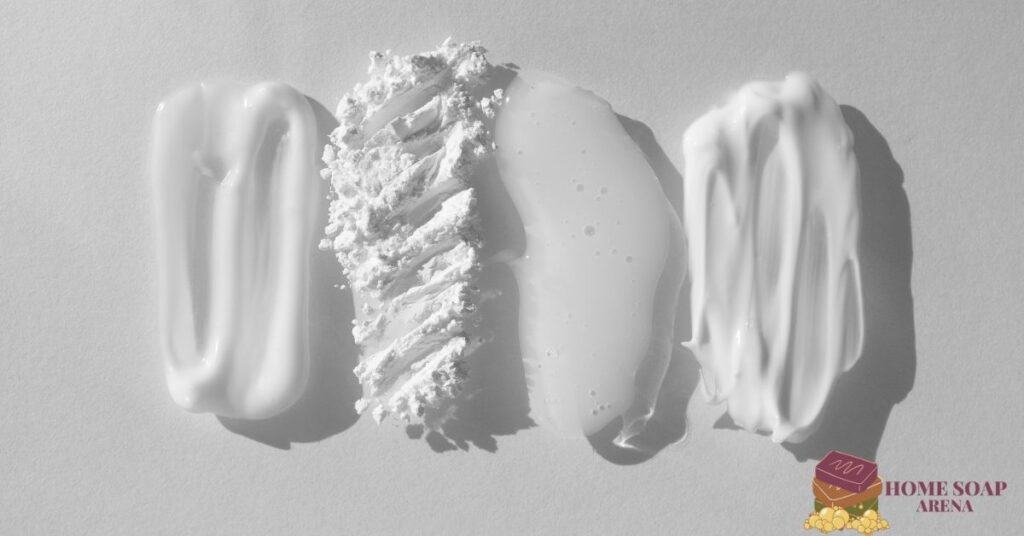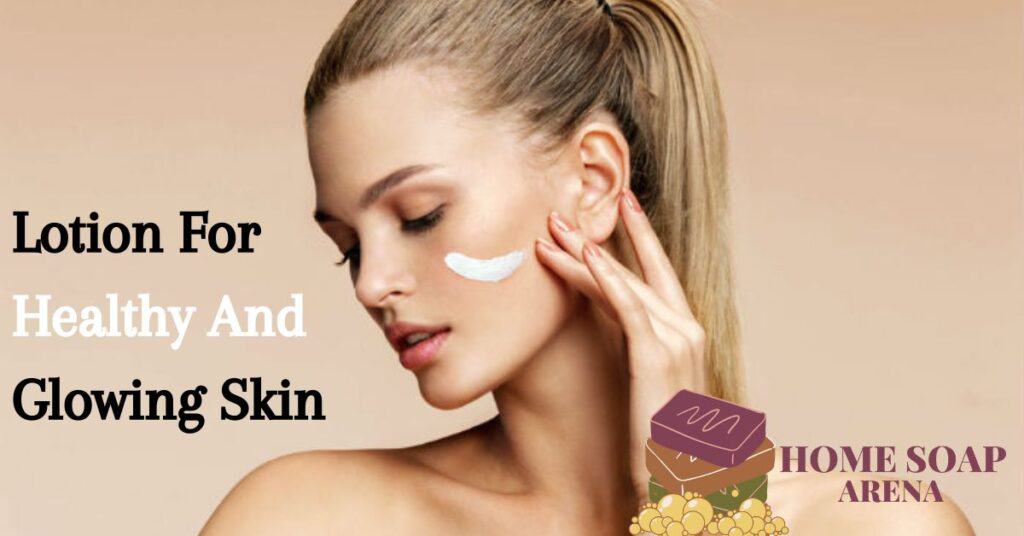Table of Contents
- The Difference Between The Skin On Your Body Your Face?
- The Difference Between Body Lotion and Moisturizer
- Why Should I Moisturize My Skin?
- Why You Shouldn’t Use Body Lotion on Your Face
- The Difference Between Face Cream and Body Lotion
- Will using body moisturizer on my face cause problems?
- Action plan:
No! Skincare products are often formulated differently for the face and body to address their unique characteristics and needs.
You walk into a store and pick up a bottle of body lotion and another labeled “moisturizer.” The labels are perplexing.
We must keep in mind that our skin is not designed to withstand everything that is thrown at it and that, in most cases, less is more.
It’s a situation that many of us have found ourselves in at some point. The skincare world can be like a skincare puzzle, with its own set of rules, ingredients, and rituals.
I’ll help you decipher the differences, make informed choices, and ensure that your skin receives the love and care it deserves.
The Difference Between The Skin On Your Body Your Face?
The skin on the body tends to a greater degree toward dehydration due to a lower presence of sweat and lipid glands.
Its pH is more acidic than that of the face, which is responsible for guaranteeing the protection of the skin against bacteria.
Using the right products for each area can help maintain healthy and balanced skin throughout your body.
The skin on your face is thinner than on other parts of your body.
The skin on the face is much thinner and more delicate, so it needs different care regimens.
Face wrinkles, as well as lines, can form due to frequent and repetitive facial expressions, such as frowning, smiling, Or other heinous actions.
These expression lines are less common on the body.
A survey shows that The highest concentration of sebaceous glands is present on your face.
These glands are in charge of producing oil, the amount of which might vary depending on hormone levels and environmental factors.
The gland on the face, is significantly more sensitive and changeable than the rest of your body.
It is more susceptible to irritation and allergic reactions.
In addition, it is more frequently exposed to the environment, particularly the sun’s harmful UV rays.
The Difference Between Body Lotion and Moisturizer
The main detail that makes the difference between the two is the mixture of oil and water.
Both are made up of these two essential elements, but in different proportions.
Both facial moisturizers and body lotions hydrate and protect the skin, but they are different.
“Body lotion” is a term that implies a moisturizing product designed for use on the body.
It was created specifically to provide hydration to the skin on the body. It sometimes has a lighter, more fluid consistency compared to creams or body butter.
Body lotions often contain ingredients like water, glycerin, various oils, fragrance, butter, and emollients (which are chemicals that seal in moisture) to hydrate and soften the skin.
It is critical to know how much body lotion to apply to avoid a sticky feeling, whether you have normal, slightly dry, or oily skin.
Moisturizer is more inclusive and can effectively describe any product intended to hydrate the skin.
Moisturizers can come in various forms, including lotions, creams, gels, and serums.
While body lotions fall under the category of moisturizers, not all moisturizers qualify as body lotions.
Face moisturizers contain more oil content and less water content compared to lotion.
Face moisturizers usually contain more specialized—and expensive—active ingredients that cater to delicate skin.
Moisturizers: depending on their intended use, they may have different ingredients. For example, facial moisturizers may contain ingredients like
Hyaluronic acid, antioxidants, SPF (sunscreen), and anti-aging compounds in addition to hydration elements
Many facial skin care products also have a more specific purpose, such as treating acne or reducing the appearance of redness, discoloration, dark spots, or wrinkles.
These skin concerns tend to show up more commonly on your face due to its thinner skin and extra oil glands.
Why Should I Moisturize My Skin?
Skin care is not just about aesthetics; it is also essential for preventing the emergence of many diseases.
In winter, for example, when dehydration is most common for all skin types, as the air
Humidity is lower, or on very hot days, it is even more important to pay attention to the skin’s hydration factor.
There are moments of the day when the skin absorbs the creams better: after shower and at night.
This is the most suitable moment to apply a body cream or moisturizing emulsion that is responsible for stabilizing the natural moisture of your skin and face.
A survey conducted on 3,978 adults in the United States revealed that a majority of men, about 60%, do not use any moisturizers on their skin.
In contrast, only 17% of women abstain from using them.
The survey also found that nearly half of all women, around 49%, moisturize their skin on a daily basis, whereas 33% use moisturizers less frequently.
Meanwhile, among men, only 39% reported using any moisturizers, with 16% of them moisturizing daily and the rest moisturizing less frequently at 23%.
It is vital to note that our skin is the largest organ in our bodies.
It serves as the first line of defense against the harsh environment, pollutants, impurities, and harmful bacteria.
The skin also regulates the loss of water and other essential elements from our bodies.
Therefore, it is essential to keep our skin hydrated with enough moisturizers to maintain its health and youthfulness.
Moisturizing your skin is a healthy habit.
- Help prevent and treat dry skin
- Protect sensitive skin
- Improve skin tone and texture
- Mask imperfections
- Reduce skin problems
- Keep the skin young and prevent wrinkles
- Increase cell turnover
- Increase resilience against toxins and UV rays
Why You Shouldn’t Use Body Lotion on Your Face
Because of the following differences, it is not appropriate to use body lotion on your face because the skin on your face has a distinct makeup from the skin on your body.
Different Skin Needs: Facial skin is more delicate and sensitive than the skin on the rest of your body.
It has smaller pores and is more prone to acne, irritation, and sensitivity.
Body lotions are typically formulated to address the thicker and less sensitive skin on the body, and they may contain ingredients that can be too harsh, and (pore-clogging) for the face.
Body creams are more nutritious and can cause facial fat.
Ingredients: Body lotions often contain ingredients that are not suitable for the face, such as fragrances, heavy emollients, and thicker oils.
These ingredients can clog pores, cause breakouts, and lead to other skin problems like milia (tiny white bumps).
As it is thinner, it will take longer to absorb, and the finish can be sticky and shiny.
Acne and breakouts: The thicker consistency of body lotions can suffocate the pores on your face, leading to acne and breakouts.
Additionally, some body lotions contain oils that may exacerbate acne-prone skin.
Sensitivity and Irritation: Facial skin is more prone to sensitivity and irritation, and using a product not specifically designed for the face can lead to redness, itching, or even allergic reactions.
Unlike body skin, facial skin, especially in dark circles, For comparison, the thickness of the dark circles (0.05mm) is half the thickness of the rest of the face (0.1mm).
Therefore, facial skin is more vulnerable to external threats.
Lack of SPF: Most body lotions do not contain SPF (sunscreen protection), which is crucial for protecting your face from the harmful effects of UV radiation.
Even if a body lotion contains SPF, there is not enough SPF inside the lotion to protect your skin.
It would be best if you used a separate facial moisturizer with SPF during the day to shield your face from the sun.
Numerous facial moisturizers on the market are formulated to meet the specific needs of facial skin.
These products are often tailored to address concerns like dryness, oiliness, aging, or sensitivity.
The Difference Between Face Cream and Body Lotion
Face cream and body lotion are both skincare products, but they are formulated differently.
And serve distinct purposes due to the varying needs and sensitivities of the skin on different parts of the body.
According to a board-certified dermatologist, the skin around your eyes is some of the thinnest on your face and body.
Face Cream: Facial skin is more sensitive and prone to irritation and breakouts, so face creams are formulated with this in mind.
They are usually non-comedogenic (won’t clog pores) and hypoallergenic to minimize the risk of skin reactions.
Face creams have more active ingredients and are specialized to cater to specific needs, such as brightening or hydrating.
Body Lotion: Body lotions are generally formulated to be suitable for the thicker and less sensitive skin on the body.
They may only sometimes be suitable for use on the face due to their heavier texture and ingredients that could lead to breakouts.
Will using body moisturizer on my face cause problems?
Both body and facial creams are moisturizing, but they have different applications depending on where on the body they are applied.
The specific needs of the skin on the torso are not the same as those on the face.
Although it is possible to find body creams for different skin types, in general, their formulas are less suitable for facial use.
In contrast, there are facial creams for different skin types, and their formulas are more specific than they are.
The latter are much more developed, and it is impossible not to find one that adapts to the needs of your skin.
A possible adverse effect is the appearance of microcysts as a result of sebum accumulating in the pore called milium.
Increased skin opacity. Your clarity and radiance will be reduced.
Lack of hydration, compared to adequate application of the cream on the corresponding part of the skin
It can cause an excess of lipids and an absence of antioxidants due to the particular demands of the skin type on the face.
Action plan:
A good body lotion and moisturizer must guarantee pH balance, or if it has become unbalanced, that it can be restored until the said status quo is reached.
Also, it must replenish lipids, protect the skin from photoaging, hydrate, and regenerate.
Therefore, it is essential to know what type of skin we have, and based on this, choose a specific lotion or moisturizer that satisfies the care that our skin demands.
And all this without forgetting a balanced diet rich in fruits and vegetables, regular hydration, and physical exercise.



